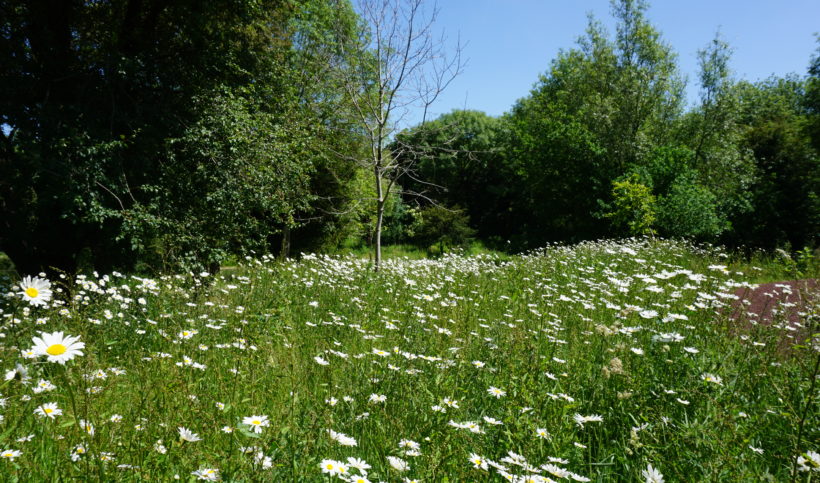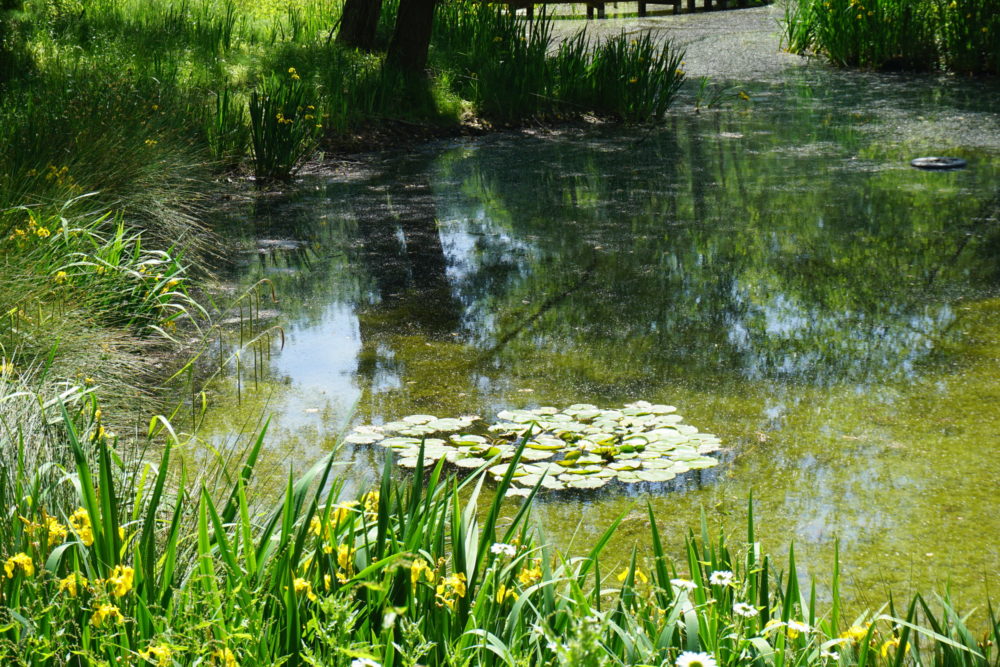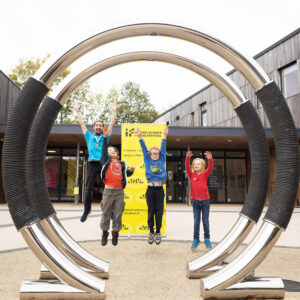The science of gardening – top tips for National Gardening Week
Monday 26th April 2021

As spring arrives, we’re championing the great outdoors for National Gardening Week – the UK’s biggest annual celebration of gardening, organised by the Royal Horticultural Society (RHS) 26th April – 2nd May. We’ve all appreciated our green spaces during lockdown, and new research from an RHS study announced this week shows that gardening just two to three times a week leads to better well-being and lower stress levels, with the same positive impact as cycling or running. In fact, just sitting in the garden is good for us! So, as the RHS are calling on the nation to get outside for their daily dose of ‘Vitamin G’, we’re delighted to announce the return of our Spring Family Days – now open every Saturday from 22nd May, where visitors can enjoy our woodland, nature trails and decked ponds as well as hands-on discovery in our Exploration Zone. Read on for top horticulture tips from Dr Roger Baker, who expertly manages our woodland conservation project and outdoor learning programme, and let’s get gardening!

Here at Science Oxford we don’t have a typical ‘garden’, instead we look after a 15 acre woodland and, like all gardeners during National Gardening Week, we are very busy outside. Our outdoor green space is managed for the benefit of the local wildlife and our 1000’s of primary school and family visitors so we do things a bit differently to many, but here are a few tips that can be applied to any sized garden.
1 – Stay local – native planting
We are doing our best to encourage only native species and carefully select any seeds or plants so that they will improve the biodiversity, flourish in their new environment, provide resilience to the changing climate and are resistant to disease and pests. There is nothing worse than having your hard work undone by putting the right plant in the wrong place, and the same goes for any garden, so do your research!
2 – Nature and Nurture: Aftercare
Aftercare is vitally important, particularly in the first year, so you need to know what your plant(s) will need. In particular, before the root system develops you will probably need to provide plenty of water. We also have to think about protecting plants from the wild animals that can dig up a bulb or munch a branch without a care for your efforts. In such a large area, we are only able to change relatively small areas through planting, but in the past have successfully sown wildflower and grass seed onto areas of prepared bare soil, planted 100s of native bluebell bulbs, and planted many native trees and shrubs.
3 – Timing is everything
Timing your work is important for many reasons, but also hard to get right. One late frost can put paid to a crop of plants, but similarly if the weather stays hot and dry for long periods, as is happening more and more frequently, then you’ll need to have good access to that watering can. We also give a lot of thought to the timing of any mowing or scrub bashing to avoid disturbing the birds or invertebrates that rely on the plants for their lifecycle.
4 – Seeds for the soul
Whatever outside space you have access to, one thing most of us will agree on is the huge benefit that being outdoors has to our health and well-being. Even if you can just sow up some small planters you will have made a difference and perhaps grown something that brings joy, and/or nutrition to your life. There are always great opportunities to volunteer outdoors and we strongly recommend joining Oxford Conservation Volunteers and getting your hands dirty at our woodland conservation project, or one of their many other locations across the county this spring. Plus you can come along to one of our Spring Family Days from the 22nd May, when you will get to explore the woodlands and see our site for yourselves.
5 – RHS National Gardening Week online resources
Check out RHS at rhs.org.uk for a fantastic range of online resources, research articles and planting tips, from sowing salad leaves to composting or making your garden more attractive to wildlife. Celebrate the feel-good power of plants and gardens, discover the scientific links between gardening and wellbeing and easy tips to get your daily dose of Vitamin G.
Dr Roger Baker, Outdoor Learning and Ecology Manager



